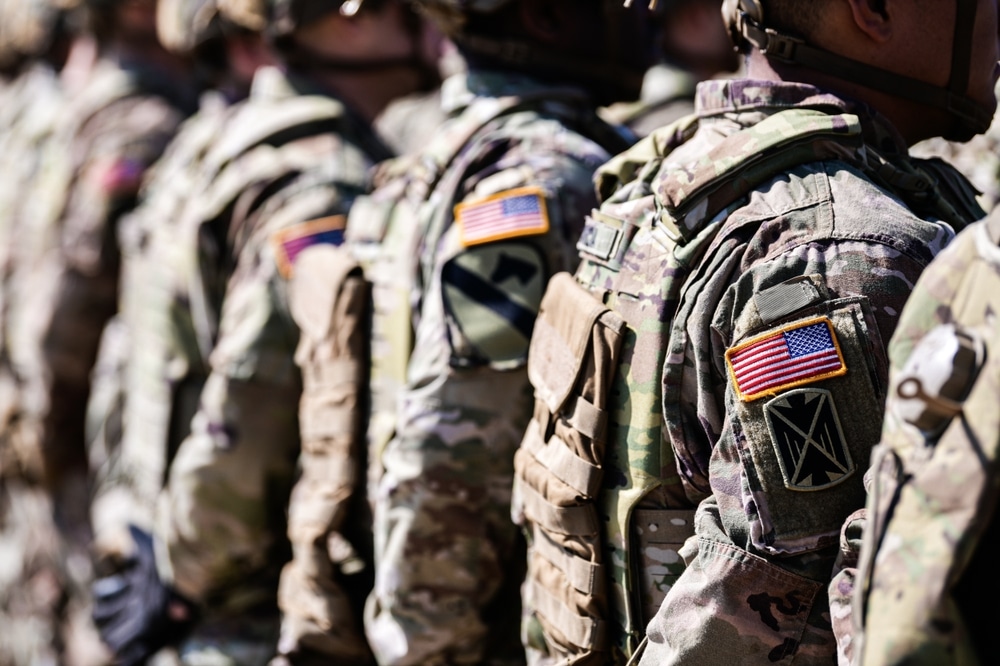The Rolling Stone article “Punishing Military Extremists Would Be Too Divisive: Pentagon Report,” cherry-picks, and as a result lacks accuracy.
The article was an examination of the report “Prohibited Extremist Activities in the U.S. Department of Defense,” which was commissioned by the Department of Defense after the Jan. 6th insurrection. I agree that the report became absolutely necessary once the former Commander in Chief declared that the violent mob was “special” and that he “loved” them. However, this article does the report a disservice.
First of all, the Pentagon said that punishment “could,” not, “would” be divisive. More importantly, they did not say that they would not punish extremists in the military. What they actually said was that they did not want to institute a separate crime called “extremism” into the Uniform Code of Military Justice (UCMJ ). They want to steer away from criminalizing belief systems and stick to what they already do, which is punish actions. They already have regulations and laws in-place that punish extreme behavior such as violence toward others. Commanders have a wide array of options for non-judicial punishment, such as admonishments, reprimands, reduction in rank, and discharge from the military. Bullying or verbal harassment would fall within the purview of the chain of command, e.g., sexual harassment, not just sexual assault.
The Pentagon Report did not find excessive extremism within the ranks disproportional to the civilian population. They acknowledged the difficulty re-programming a new recruit who has been influenced by television, and social media platforms, that deliver anti-American/anti-Constitutional content. This runs the gamut from misinformation, to disinformation, to conspiracy theories. The military represents a cross-section of our citizenship so that whatever exists in the civilian world also comes through their doors. The Department of Defense doesn’t want punitive measures prematurely before trying to educate and assimilate to military culture.
The military led the way with integration of women and minorities and giving them equal pay, equal opportunity for promotion, etc. Many a racist and misogynist has joined the ranks of the military only to be given the opportunity to change views or hit the road. The manifestos of right-wing extremist groups are simply incompatible with military service.
Rolling Stone speaks of a “startling conclusion” coming out of the DOD, but I read no startling conclusion in this report; merely concern that these extremist views must be weeded out and dealt with. The article in Rolling Stone also claims that dozens of people connected to the military were part of the insurrection. That is factual, but creates a false impression. The author failed to decipher that “connected” simply means that a person once served in the military, even if it was 15 years ago; and he failed to inform that you can be kicked out of the military with a less than honorable discharge and still call yourself a veteran for the rest of your life.
READ: We’re in an Epidemic of Right-Wing Terror. Won’t Someone Tell the Press?
The Pentagon report also emphasized that National Guard and Reserve units are more vulnerable to extremism. They have been called “weekend warriors” because they serve one weekend a month and two weeks during the summer and are not embedded in military culture full time. They are moreso influenced by the civilian world they function in and the cyber culture they choose outside of military control. DOD is very concerned about the impression this has on the general public and that “even a small number of individuals with military connections and military training … could present a risk to the country as a whole.” The Pentagon states repeatedly that a perception of extremism in the ranks is “inconsistent with the military’s tradition of nonpartisanship.”
Rolling Stone claims that the Pentagon seemed eager to downplay the discovery of extremist behavior, but that is not what I found. In fact, the DOD voiced concerns about over-disciplining and losing the opportunity for education and change. They admit that they found inconsistencies in definitions and perceptions of extremism, as well as inconsistent application of punishment or corrective action among the separate services and commands.
Rolling Stone is correct that the military wants to avoid the impression that they are targeting anyone for their views; but I can’t agree with their conclusion that the Pentagon is trying to avoid the impression of political correctness or targeting one side of a political spectrum. The DOD report simply says that action taken against a military member should be based on their behavior, not their beliefs.
The Pentagon realizes that it has people joining who come from bigoted or dysfunctional homes and don’t know any better; they prefer to deal with such cases with restorative intervention, mentoring, and counseling before punishment. Rolling Stone refers to this as “touchy-feely” recommendations. But, as a career military officer, and a career mental health officer, I think that the Pentagon is taking the right approach—emphasizing core values, pointing out what is inconsistent with those values and correcting or eliminating those who do not conform to duty, honor, integrity and service before self.
READ: History Must Record Trump’s Plan for a Nationwide ‘Kent State’ Massacre
The former president and certain members of congress have publicly accused the military of being too “woke.” This criticism comes from people who have never served in the military, like Donald Trump and Tommy Tuberville. It would be bad enough if they were merely ignorant concerning military operations, but the former president orchestrated an attempted overthrow of our government—there is no greater example of extremism.
Donald Trump called for the execution of Gen. Mark Milley, former Chairman of the Joint Chiefs, he disclosed the most highly classified material to a foreign national who had no clearance, and he orchestrated a coup to overthrow the peaceful transfer of power. These are examples of extremism that would end any military career. The real danger is that the former Commander in Chief, a major motivator of the extremist movement studied, is the leading candidate of the GOP presidential election. Were he to be reelected, there could be no stopping extremism in the military.







